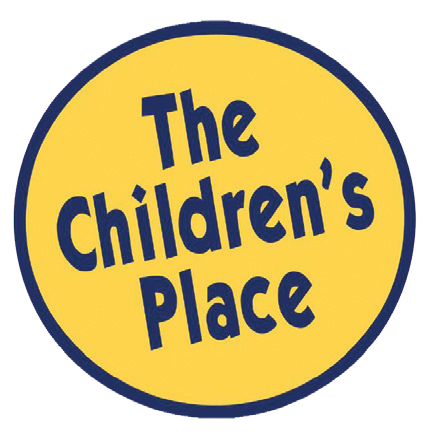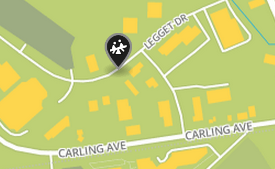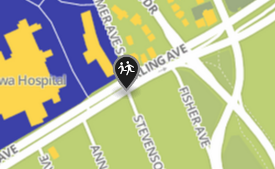The Children’s Place Program Statement
The Children’s Place programs create rich learning environments for children which helps towards reaching their full potential. This approach to learning is in alignment with the Ministry of Education’s How Learning Happens, a resource developed by the Ministry of Education to promote a shared understanding of what children need, as well as opportunities for growth and success in their Early Years.
The Children’s Place Child Care Objectives:
- To provide a warm, caring environment to develop children’s creative, intellectual, emotional, social and physical needs
- To plan for and create positive learning environments and experiences, that support a child’s individual needs, learning and development
- To provide a safe environment that is part of a natural progression between home and school
- To ensure children are cared for, and supervised always
- To employ staff that are experienced and trained to provide the best care and enrichment for the children in our care
- To provide a communication system that ensures parents and staff have ongoing contact throughout a child’s time at our center
We at The Children’s Place are committed to delivering flexible, high quality childcare that is progressive and responsive to the changing needs of our families. Our programs are positive and nurturing environments that provide all children with supported learning experiences that enhance their individual social, intellectual, physical and emotional development. We create rich opportunities for children to flourish and reach their individual potential by supporting learning that occurs in all aspects of a child’s daily routine which encompasses a balance of indoor and outdoor play, as well as active play, rest, and quiet time.
Children are competent, capable, curious and rich in potential
Play is the cornerstone of our curriculum. We base our program learning experiences around play. The value of play in early childhood is supported by theory and research, it is the basis for which quality childcare programs evaluate success and therefore it is reasonable for us to expand our philosophy on children’s learning into an inclusion of academic achievement, without erosion on child driven curriculum and choices.
Play is the platform for inquiry and exploration and essential to healthy social and cognitive development of children. We view children as competent, capable of complex thinking, curious, and rich in potential. Through play and inquiry, young children practice ways of learning and interacting with the world around them that we hope they will apply throughout their lives. The Children’s Place curriculum takes a child initiated, adult supported approach that focuses on play based learning, allowing the child to take the lead, and then focusing on his or her interests through intentional observation, interaction and engaged communication. When this approach to learning takes place along with staff’s understanding of child development, each child’s learning and individual development is supported and as a result the child’s competence, capacity and potential are maximized.
Our Program Mission:
To provide quality of educational care for your child(ren) during their time in our care, with an emphasis on:
- Developmental growth opportunities
- Self-help skill training
- Individualism
- The right to choose
- Action/consequence
- Communication
- Pre-readiness skills for entrance to school
It is our professional duty to provide each child with the skills they will need to prepare themselves for their future challenges.
Learning Experiences:
Social-to provide the opportunity to meet new friends. To learn acceptance of them and by them and to have fun.
Physical-to provide the opportunity to play with materials that will help to develop muscle growth in fine and gross motor skills coordination, with manipulative activities.
Intellectual-to provide an environment with adequate materials to challenge each child at a level that is comfortable to them, that allows them to participate on a non-competitive basis, to arouse their curiosity, enthusiasm, and creativity.
Cultural-to provide resources for each child which will teach them about diversity in our community/society and will assist them in the understanding of different people, different cultures, and differing values.
Emotional-to model for the children in our care respect for others. To provide opportunities that will teach self-help, self-respect. Self-concept, diversity, and problem-solving skills.
Nurturing-to provide children with affection and caring, basic needs, and safety. To teach them how to nurture.
Other-to provide children with resources and tools that will meet changes in our society and to recognize the need for us as teachers to keep current, to be pro-active on behalf of children and for the work we do, and to be positive in our teachings and modeling.
Our goals for children, consistent with the Ministry of Education pedagogy, include the following:
- Every child has a sense of belonging when he or she is connected to others and contributes to their world.
- Every child is developing a sense of self, health, and well-being.
- Every child is an active and engaged learner who explores the world with body, mind, and senses.
- Every child is a capable communicator who expresses himself or herself in many ways.
Health, safety, nutrition and well-being of children
We know that children flourish in all areas of development when they are in supportive, caring and responsive relationships with adults whose focus is on the health, safety, nutrition and well-being of the child. This is the foundation of quality child care.
As a licensed child care operator, The Children’s Place strives to exceed health and safety requirements of the Ministry of Education and local government bylaws.
Menus are comprised of an assortment of healthy food items from each of the food groups in the Canada Food Guide. Providing children with healthy eating choices, helps to pave the path to life-long skills for making healthy choices to nourish their bodies for optimal health and development.
Relationships among children, families, staff and community partners
We believe that child care is a shared responsibility between parents and The Children’s Place educators. We value parent engagement in the area of their child’s development as well as program development. We view our relationships with families as teachers, constructing knowledge and working together in the exchange of information about their child’s language, culture, interests, and development, so their child’s experience, is greater than if doing it alone could provide.
The Children’s Place is experienced in providing inclusive programming for all children. When working with children with special needs, we work closely with parents and community partner organizations, to putting the appropriate support and resources in place for optimum success for the child.
Positive self-expression, communication and self-regulation
We seek Educators who are competent and capable, curious, and rich in experience, as well as knowledgeable, caring, reflective, and resourceful professionals who bring diverse social, cultural, and linguistic perspectives to our programming. Staff collaborate with others to create engaging environments and experiences to foster children’s learning and development. Positive learning environments and experiences, focused on active play-based learning, encourage children’s communication, self-expression and self-regulation. Through interaction with the children and by demonstrating problem solving, responsibility, accountability and independence we teach the children life skills in preparation for their next step in growing.
The Children’s Place educators encourage child’s developing sense of self, and their ability to see themselves as capable communicators, able to manage their emotions and behavior. Our Programs are run with the basic idea of teaching children that they do have a say in what they do, how they do it and when they do it. They are further taught that their choices may have consequences and they can control those consequences by the choices they make. Our programs are designed to allow children to move from learning centre to learning centre, based on their own level of accomplishment. We teach them to identify the skills they have and the skills they still need to learn and develop.
We want children to be able to make choices when they are ready for that next challenge. Staff will not selectively teach all children the same thing, nor expect all children to comprehend the teaching at the same level or speed. Staff will make available opportunities to meet a successful conclusion for each child development regardless of age.
Recognizing that children have varying behaviors, it is the goal of staff at The Children’s Place to work with these behaviors in a positive and supportive manner. This will be done in a way that respects the rights of the child and continues to teach the child that they have choices. We are individuals with a need to control our own lives, in at least some things. This recognition and acceptance of “Own Behavior” benefits our ability to negotiate positive outcomes, reinforce acceptable behaviors and reduce stress related to conflict.
Own Behavior
Children normally know when they are doing wrong. How we deal with their “own behavior” and adjust our attitudes to their behavior can allow us to be fair and consistent with all of the children. Thus, reducing the possibility of our making a judgment of whether they “knew”, therefore, we hope that they will be more accepting of our interaction when we don’t approve of their behavior.
By getting into the habit of reviewing our own attitudes to a child’s behavior, first we develop the habit of consistency in how we deal with and react to behaviors. We also become more aware of the frequency in the same child and because we review our attitudes, we can become more successful in recognizing why this behavior may be occurring i.e. tired, stress, provoked, sick
Parent engagement and communication
The Children’s Place encourages an open-door policy. Families are welcome at all times. We practice open communication, so that information gets shared to families, through daily observations, family events, social media updates, and ongoing website management. We are committed to delivering flexible, affordable, high quality childcare that is progressive and responsive to the changing needs of our families, which we believe, gives a parent peace of mind while their children are in our care.
Community partners
We view the community as a valuable resource and our educators plan learning opportunities to engage the community in our programs. We seek out opportunities to share our knowledge and to learn from others in the community. We do this through learning and practical work experience, in the areas of education, through student placement and training, and we extend opportunities for youth to develop employment skills and traits.
Supporting staff in continuous professional learning
The Children’s Place recognizes the importance of continuous professional learning for our staff. During regular meetings, staff have ongoing discussions about their own professional development, and are provided with various professional opportunities in house, and in the community for professional growth. This training supports our staff, and enhances their continued ability to deliver high quality experiences and care for children.
Our Educators are supported in their ongoing learning through the College of Early Childhood Educators’ self-reflective and self-directed framework for continuous professional learning. The Continuous Professional Learning program is designed to help RECEs reflect, plan for and document their professional learning in a meaningful way.
As part of our continuous learning approach, all teachers, regardless of previous education and experience, are supported in continuing the study of and training in childcare techniques and Early Childhood Education practices. Apprenticeship programs are offered for an ECE certificate by the Ministry of Training, Colleges and Universities of Ontario. Our Organization offers financial and mentoring support to promote this process as a means of completing an ECE diploma while still working.
Formal professional learning is vital, but we also know that the most central professional growth happens day-to-day, as our staff co-learn alongside the children and each other as self-reflective professionals.
Documenting and reviewing the impact of The Children’s Place learning program
The Children’s Place educators, are professionals, who connect with children, endeavor to provide safe environments, plan and extend play, scaffold learning, reflect on successes and document the children’s play and learning. Our educators get involved in play with children to support development, challenge thinking, and extend learning. The documented play is shared with parents on a regular basis.
Staff plan for and create positive learning environments and experiences in which each child’s learning and development is supported. Educators reflect and assess their program and environment daily to aid in meeting the individual needs of the children and the group ensuring that their environment is set up according to the interests of the group.
Observation and documentation is a way for our program staff to discover how children think and learn. It is through daily observations of the children during play that staff identify children’s interests, plan with the children and develop future ideas for programming. In this way, we extend learning that can lead to a child’s deeper investigation with materials and the environment.



